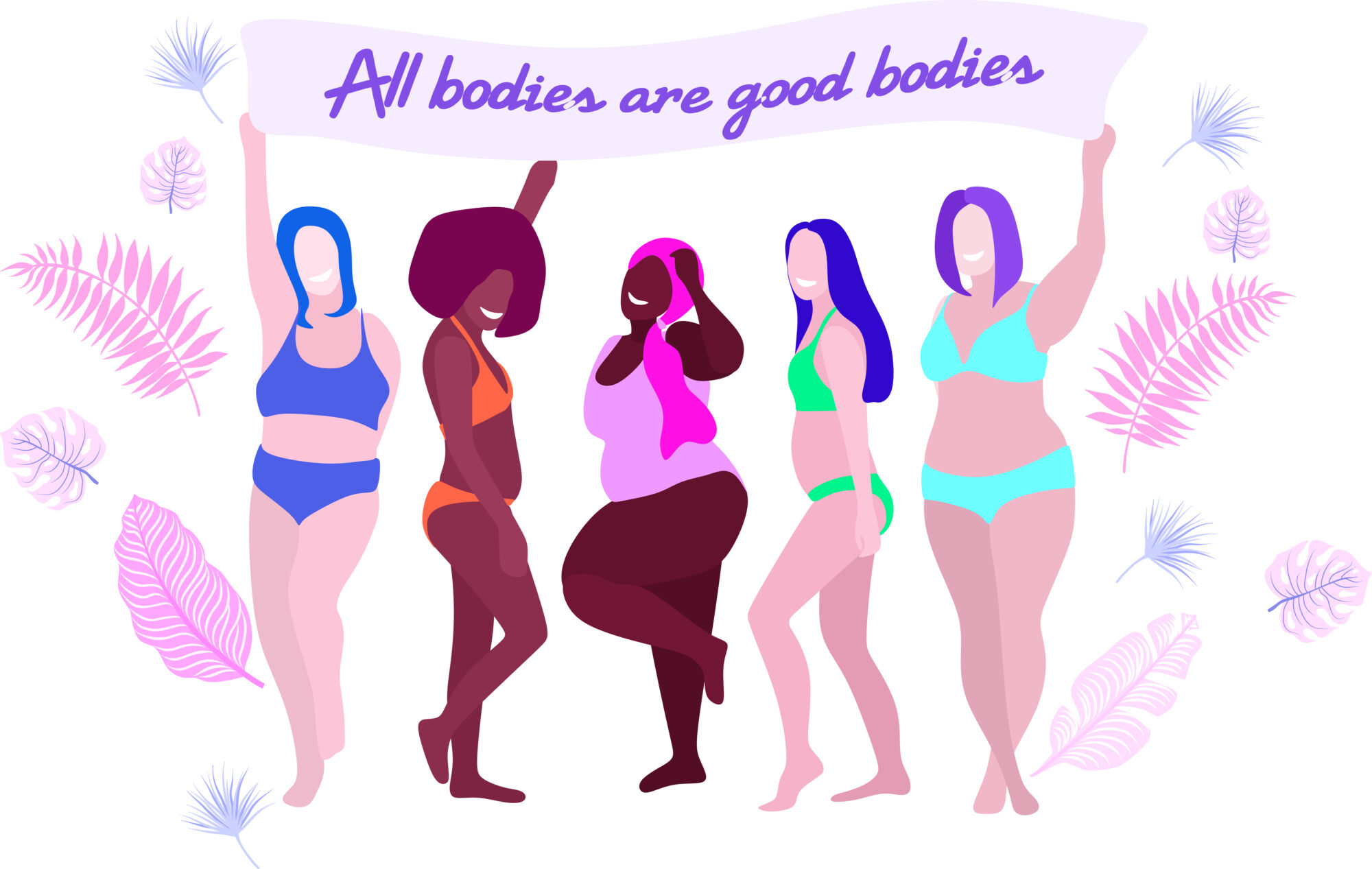So many women struggle with their bodies and how they look. And the worst part is that the research shows that this starts early and tends to last into later life. Can you imagine being unhappy with your body all your life? It can be a confronting prospect to consider.
Body image is complex, with many dimensions involved:
-
-
- It’s how you feel about your body.
- It’s how you feel living in your body (how you experience your body).
- It’s how you think about your body.
- It’s how you see your body.
- It’s how you remember your body.
- It’s how you behave towards your body, and react to your body.
-
These parts are often connected. For example, if you feel unhappy about what your body looks like, you can wind up thinking badly of it and ‘feeling fat’. This can affect how you behave towards your body, such as: trying to change it through diet and exercise; monitoring it to see if these changes are working; and avoiding seeing other people on days when you are particularly unhappy with your body. Body behaviours are also linked to negative thoughts, for example, ‘Who could ever love someone who looks like me?’. Being dissatisfied with your body image can be distressing, time-consuming, and negatively affect your life.
Body dissatisfaction and body image problems are thought to arise from the western cultural ideal that prizes slimmer bodies (the ‘Thin-Ideal’). You see these bodies in media and social media all the time. There are whole industries built around this: think diet culture and modelling. You hear it in discussion socially, where people comment on other peoples’ bodies (often negatively), your body, what people are eating, or talk about their own plans to lose weight. These experiences teach women that being thin is ideal and something to be strived for. As bodies come in all shapes and sizes, many people will be left feeling that their bodies are not ideal and need to be changed.
And even when you take steps to change your body towards the ‘Thin-Ideal’: is it ever good enough? Often not, because the problem is not your body. The problem is your body image and satisfaction.
So if losing weight isn’t the answer, what is?
It’s working from the inside-out: loosening attachment to that thin-ideal that you’ve learnt. And changing the patterns present in the different body image dimensions. This can involve different things, such as:
-
-
- Engage in positive and caring behaviours towards your body, such as taking the time to apply beautiful shower scrubs and lotions on your body. Try doing this mindfully to experience how this feels for your body.
- It’s taking the time to think about and notice parts of your body that you do like, or that feel more neutral. (Do you dislike your eyes, hands, ears, or other sensory body parts as much as other ones like your stomach?). When you’re thinking about how much you dislike your body, shift your focus to these more neutral or positive parts instead. Cultivate a focus on the parts you like or can tolerate.
- Take care of your body. Feed it. Get enough sleep. Drop trying to change it- this just maintains your unhappiness with your body.
- Remember times when you have felt good inside your body, and when you’ve had fun using it.
- Try to spend less time focused on hating your body or avoiding it out of fear. Drop the checking and monitoring of your weight. Avoid the comparisons to others (and yes, you’ll likely need to do social media differently or not at all for this). Remind yourself that media images are often heavily edited and photoshopped.
- Live your life, rather than putting this on hold until your body is thinner. See friends. Go to the beach. Eat out. Explore places and have adventures.
- Appreciate what your body can do (rather than what it looks like). You can walk around in it, work, and more.
- Notice parts of your personality and social relationships that have nothing to do with what you look like. What are some of your traits? Do your friends and family still spend time with you and enjoy your company, regardless of what your body looks like? What do you bring to your friendships?
-
And yes, this can sound simplistic. Sometimes several small changes across the different body image parts can work together to disrupt the overall dissatisfaction or distortion that’s experienced. And if this allows you to be in more in your life and less focused on how your body measures up to an unrealistic ‘ideal’, you’re likely to be happier. It is so worth doing!

